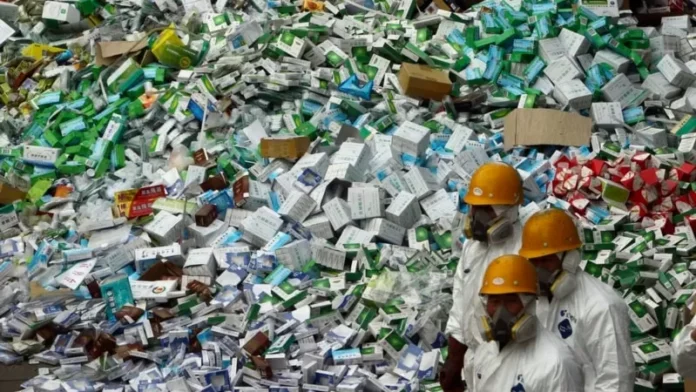Consumer safety and protection is of utmost importance in the pharmaceutical industry. However, a recent report by the U.S. Trade Representative has shed light on the alarming truth about online pharmacies. According to the report, nearly all 35,000 online pharmacies around the world are operating illegally, putting consumers at risk of receiving ineffective or even dangerous drugs. Moreover, the report also raises concerns about the sale of counterfeit or pirated products in 19 different countries, further highlighting the need for stricter regulations and measures to combat this issue.
The report, released on Wednesday, revealed that a staggering 96% of online pharmacies are violating the law. Many of these illegal pharmacies operate without a proper license and sell medications without a prescription or proper safety warnings. Despite their false claims of being approved by the Food and Drug Administration, the report warns consumers against the risks of buying prescription medicines from such sources. This finding is further validated by a survey conducted by the Alliance for Safe Online Pharmacies’ Global Foundation, which found that nearly one in four Americans who have used online pharmacies have encountered substandard, fake, or harmful medicines.
Not only are these illegal online pharmacies a threat to public health, but they also pose a risk to the safety of consumers. In the past year, there have been numerous cases of illegal drug sellers packaging synthetic opioids into pills disguised as common prescription drugs and selling them through fake online drugstores. This dangerous practice has resulted in the deaths of at least nine people between August 2023 and June 2024, according to federal prosecutors.
Apart from the risk of consuming inert ingredients or experiencing allergic reactions, these illegally sold medicines are also often made in unsanitary conditions. Unfortunately, the report did not provide annual statistics on the number of deaths or harm caused by these dangerous drugs. This highlights the urgent need for stronger measures to regulate online pharmacies and protect consumers from such risks.
The report also mentioned the progress made in the fight against counterfeit and pirated goods. For example, a successful collaboration between U.S. authorities, industry groups, and the police led to the shutdown of a piracy ring in Hanoi, Vietnam, and other related piracy sites. Another positive outcome was the conviction and penalty of two individuals operating a pirate television platform. However, the report also raises concerns about the availability and sale of imported ingredients, including fentanyl from China, on these illegal online platforms.
One significant step taken towards tackling this issue is the creation of the “Notorious Markets List,” which names and shames online retailers engaged in selling counterfeit products or other illegal activities. Some of the notable names on this list include websites based in China and other Asian countries. However, the report emphasizes that many of these illicit online pharmacies are based outside of the U.S., making it challenging to enforce regulations.
While there have been some successes in fighting against piracy and counterfeit products, the report also highlights the challenges in regulating cyberlockers and “bulletproof” internet service providers (ISPs) that offer leeway for using pirate sites. The report specifically mentions Avito, a Russian-based ad platform, and Baidu Wangpan, a cloud storage service of China’s largest search engine provider, for their lack of enforcement of copyright protection. It also points out social-commerce sites such as Pinduoduo and Douyin Mall, owned by Tiktok owner ByteDance, for their failure to prevent the sale of counterfeit goods.
The report also raises concerns about IndianMART, a big business-to-business marketplace in India, which is still offering a significant number of counterfeit products. While the theft of intellectual property has largely moved online, the report also highlights specific real-world locations notorious for selling counterfeit products, such as markets in Turkey, bazaars in the United Arab Emirates, and the Saigon Square Shopping Mall in Vietnam’s Ho Chi Minh City.
However, amidst these alarming findings, there are still positive developments to be noted. The report mentions that Bangkok’s MBK Center, a large mall with 2,000 stores, has actively cracked down on counterfeiting. While the sale of such products can still be found in the mall, the efforts made in enforcing regulations are commendable.
In conclusion, the recent report by the U.S. Trade Representative highlights the need for stricter regulations and enforcement measures to combat the illegal sale of drugs and counterfeit products online. It is crucial to protect consumers from the risks posed by illegitimate online pharmacies and to continue to make progress in the fight against piracy and counter

